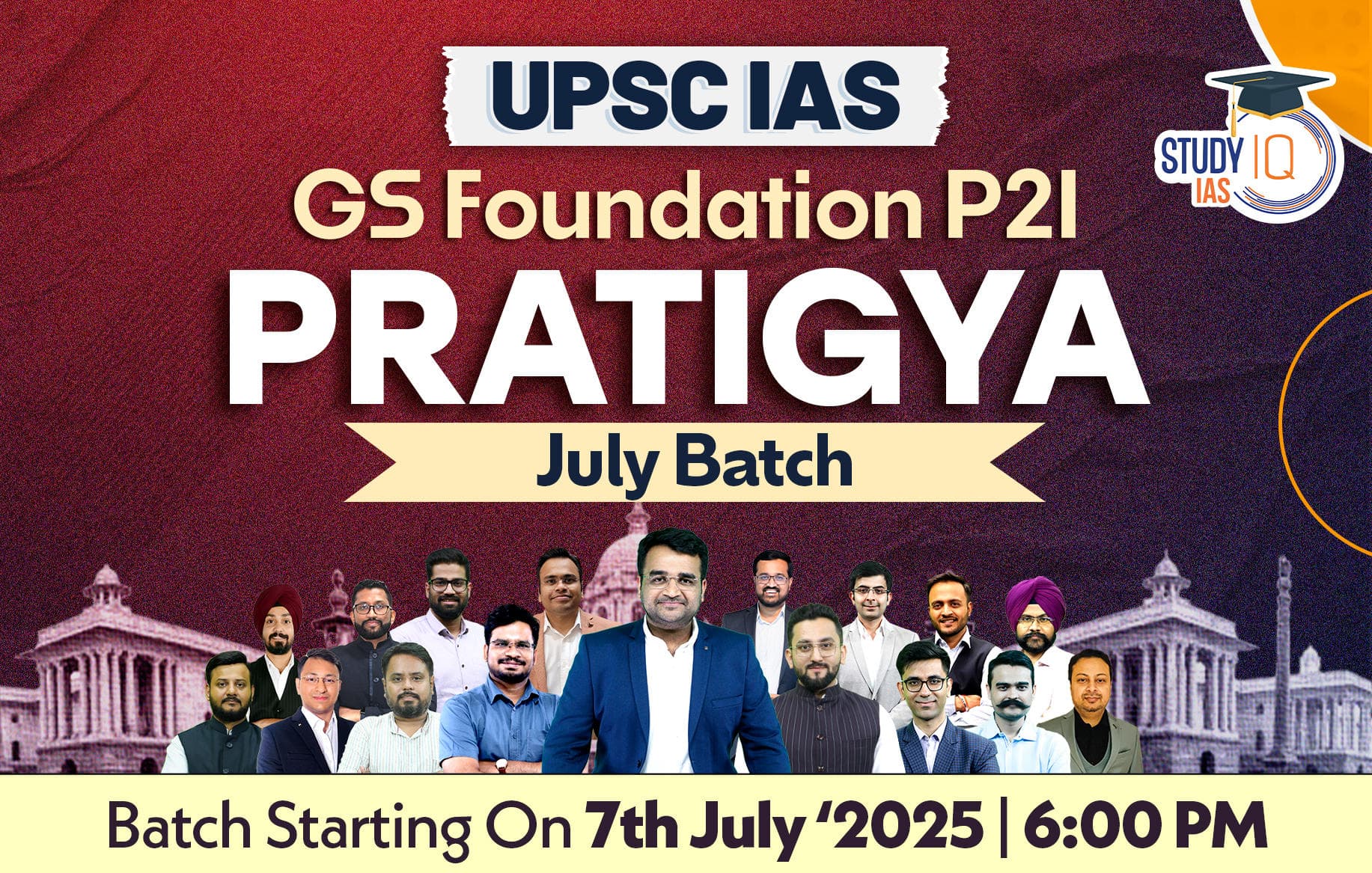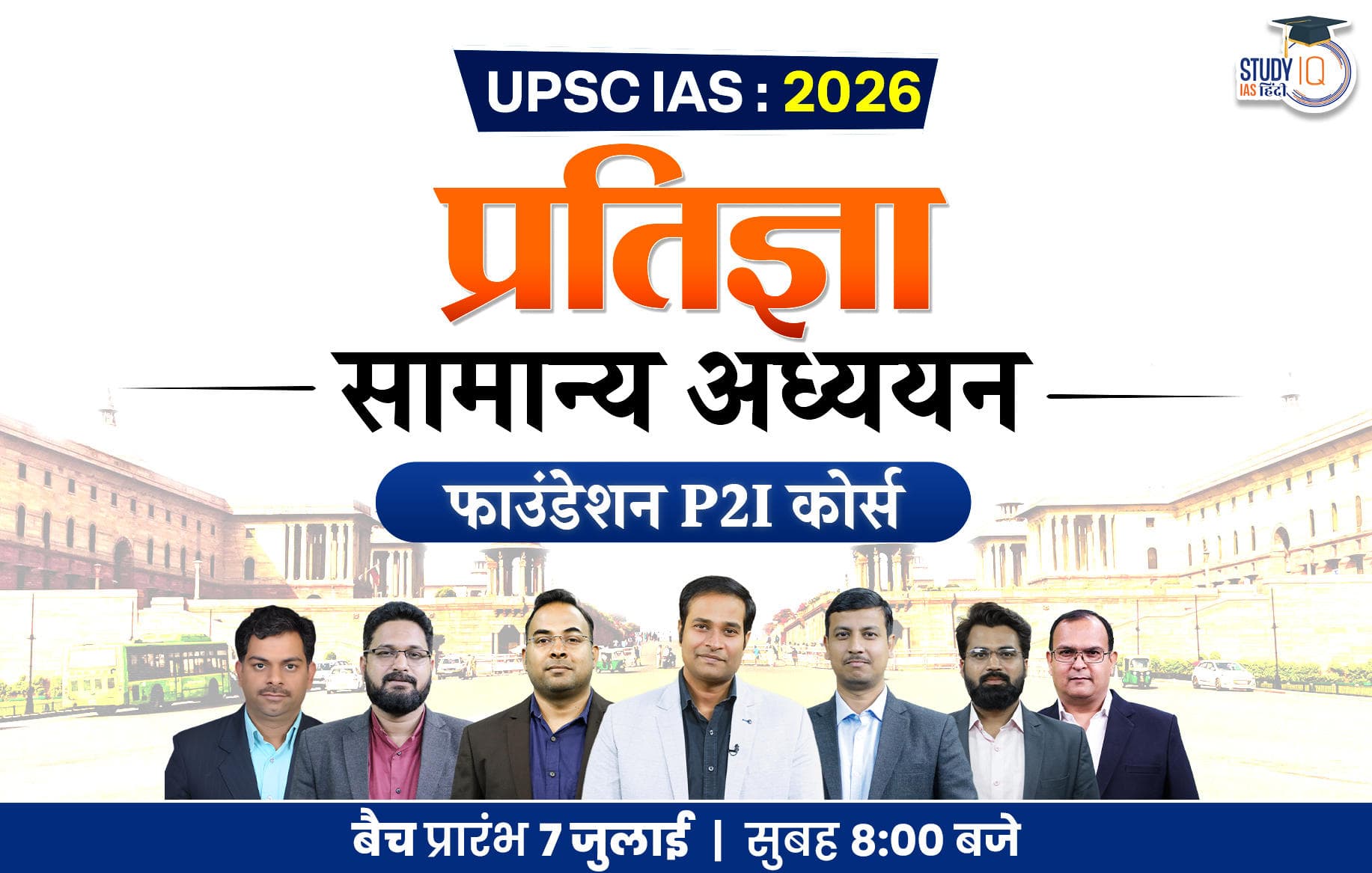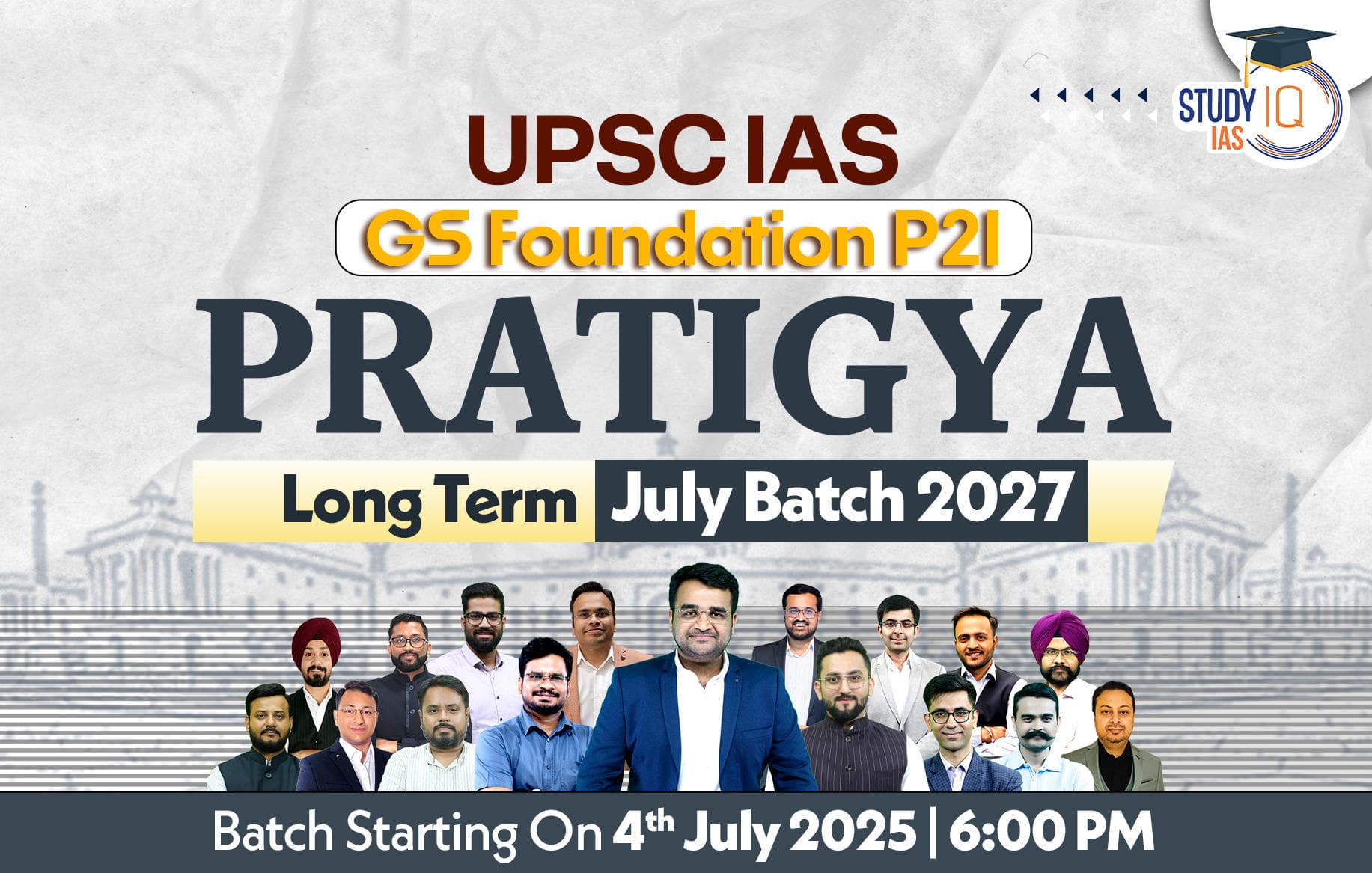Table of Contents
The UPSC Civil Services Examination (CSE) is one of the most prestigious exams in India. Every year, lakhs of aspirants compete for limited positions in the Indian Administrative Services (IAS), Indian Police Services (IPS), and other esteemed posts. To ace the UPSC, understanding the syllabus is the first step. Here, we break down the UPSC Prelims Syllabus 2025, subject-wise, and provide details on how to download the official syllabus PDF.
UPSC Prelims Syllabus 2025
The UPSC Prelims is the first phase of the IAS Selection Process. Candidates preparing for the UPSC Prelims exam should have an idea about the topic that is coming up in the UPSC Prelims. Candidates preparing for the UPSC CSE 2025 can read the syllabus and exam pattern for tips on preparation. In this article, we have discussed the UPSC Prelims Syllabus 2025.
| Overview | |
| Category | UPSC Prelims Syllabus |
| Number of Papers: | Two Papers
|
| Types of Questions | Multiple Choice Questions (Objective Type) |
| Duration of Exam: | 2 hours each |
| Total Marks: | 200 marks for each paper (Total of 400 marks) |
| Language of Exam: | English & Hindi |
| Negative Marking | 1/3rd mark for every wrong answer |
| Marks Counted in Merit | No |
UPSC Prelims Exam Pattern 2025
Candidates should thoroughly understand the UPSC Exam pattern 2025 before referring to the IAS Prelims Syllabus 2025. The UPSC Prelims exam has two papers. General Studies (GS) is the first paper for the UPSC prelims, and CSAT is the second. The Civil Services Aptitude Test is sometimes referred to as CSAT.
| UPSC Prelims Exam Pattern 2025 | |||
| Paper | SubjectMarks | No. of Question | Duration |
General Studies 1
|
200 | 100 | 2 hours |
General Studies 2 (CSAT)
|
200 | 80 | 2 hours |
UPSC Prelims Subject-wise Syllabus 2025
Candidates preparing for the Preliminary should have gone through the UPSC Prelims 2025 Syllabus. In this section, we have discussed the prelims syllabus in detail. Candidates can review the complete General Studies (Paper I) and CSAT (Paper II) Syllabus subject-wise and start preparing for the UPSC Civil Service Exam 2025.
UPSC CSE 2025 General Studies Paper 1 Syllabus
The first paper of the UPSC Prelims Exam is General Studies 1 (GS-1), which includes Geography, History, Art and culture, Indian Polity, Economy, Environment and ecology, General Science, Science and technology, and Current Affairs.
UPSC Geography Syllabus 2025
Oceanography, Climatology, Physiography of India, Soils in India, etc., are important topics for the UPSC Exam 2025. For topic-wise detailed coverage of the IAS Prelims Syllabus for Geography.
1. General Geography
2. Geomorphology
- Earth’s Interior
- Geology and Rock System
- Geomorphic Process
- Earthquakes and Volcanism
- Distribution of Continents and Oceans
- Landforms and their evolution
- Landforms across the world
3. Oceanography
- Hydrosphere
- Submarine Relief Features
- Temperature and Salinity
- Waves, Oceans, Currents, Tides
- Marine Resources
- Ocean, Deposits, and Corals
4. Climatology
- Atmosphere
- Inversion of Temperature
- Insolation and Heat Budget
- Air Mass, Fronts, Cyclones and Jet Streams
- Wind and Pressure Belts
- Precipitation
- Climate Zones of the World
5. Bio Geography
- Soil Characteristics
- Vegetation Resources
6. Human and Economic Geography
- Demography and Census
- Human Development
- Economic Activities
- Transport and Communication
- International Trade
- Settlement
7. Indian Geography
- Physiography of India
- Drainage System
- Climate
- Soils in India
- Natural Vegetation
- Population
- Settlements and Urbanisation
- Land Resource
- Mineral Resource
- Energy Resource
- Agriculture and Basic Terminology
- Recent developments in agriculture
- Productivity of Crops
- Industry
- Transport
- Recent developments in Industry and Transport
8. World Regional Geography
- Continents, Countries, and Cities
- Location in News
UPSC History Syllabus 2025
Ancient History, Medieval History, and Modern History are the major categorisations of Indian History. Every section is important to understanding the chronology of Indian History thoroughly. As per the past UPSC trends, Modern History has a reputation for topic-wise detailed coverage of the IAS Prelims Syllabus for History.
Ancient History
- Pre-Historic Times
- Indus Valley Civilisation
- Rig Vedic Period
- Later Vedic Period
- Jainism
- Buddhism
- Mahajanapadas
- Mauryan Empire
- Post-Mauryan Period
- Gupta Period
- Harshavardhana Period
- Sangam Period (South-Indian Dynasties)
Medieval History
- Famous Early Medieval Indian Dynasties (Pallavas, Pratiharas, Chalukyas, Rashtrakutas)
- Cholas and South Indian Kingdoms
- Early Muslim Invasions
- Delhi Sultanate
- Afghans, Rajputs & Mughals
- Establishment of the North-Indian Empire
- The Mughal Empire
- Marathas and the Other Indian States
- The decline of the Mughal Empire
- Vijaynagar Empire
Modern History
- The advent of Europeans
- British Expansion
- Administration before 1857
- Economic Policies of the British
- Impact of British Administration
- Revolt of 1857
- Administrative Changes after 1857
- Development of Civil Services
- Development of Education
- Development of Press
- Socio-Religious Reforms
- Peasant Movements
- Revolutionary Nationalism
- Indian National Movement-I (1905-1918)
- Indian National Movement-II (1918-1929)
- Indian National Movement-III (1930-1947)
- Governors-General and Viceroy of India
- Constitutional Development of India
UPSC Art and Culture Syllabus
Architecture, Classical dance forms, Folk dance forms, Mural Painting, Miniature Paintings, etc. are essential topics for the UPSC exam. For topic-wise detailed coverage of the IAS Prelims Syllabus for Art and Culture.
- Architecture
- Sculpture
- Paintings (Mural & Miniature)
- Pottery Tradition
- Numismatics
- Performing Arts (Dance, Music, Theatre, Martial Arts)
- Religion and Literature
- National and Regional Festivals
UPSC Environment Syllabus
Ecosystems, Biodiversity, Mangroves, Coral Reefs, Climate Change, etc., are important topics for the UPSC exam. For topic-wise detailed coverage of the IAS Prelims Syllabus for Environment and Ecology.
- Origin of Life Forms
- Basic Concepts of Ecology
- Ecosystem Functions
- Population Ecology
- Adaptation of Species and Interactions
- Terrestrial Ecosystem
- Aquatic Ecosystem
- Nutrient Cycling
Biodiversity
- Basics of Biodiversity
- Animal and Plant Diversity
- Threats to Biodiversity
- Biodiversity Conservation
- Estuaries
- Mangroves
- Coral Reefs
- Wetlands
- Resource Degradation and Management
- Environmental Pollution
- Climate Change
- Environmental Governance
UPSC Polity Syllabus
Fundamental Rights, DPSPs, Fundamental Duties, Judiciary, CAG, Attorney General of India, etc., are important topics for the UPSC exam. For topic-wise detailed coverage of the IAS Prelims Syllabus for Indian Polity.
- Evolution of the Constitution
- Salient Features of the Indian Constitution
- Union Territories
- Citizenship
- Fundamental Rights
- Directive Principles of State Policy
- Fundamental Duties
- System of Governance
- Union Executive
- Union Legislature
- State Executive
- State Legislature
- Local Government
- UT and Special Areas
- Judiciary
- Constitutional & Non-Constitutional Bodies
- Political Dynamics (Political Parties, Elections, Pressure Groups)
- Governance
- International Relations
UPSC Economy Syllabus
Money and banking, Monetary Policy, Fiscal Policy, Inflation, Five-year plans, etc. are essential topics for the UPSC exam. For topic-wise detailed coverage of the IAS Prelims Syllabus for Economics.
Basic Concepts
- Macroeconomic Concepts
- Microeconomic Concepts
Economic Measurements
- National Income & Its Calculation
- Economic Growth and Development
- Inflation
Money & Banking
- Money Function & Classification
- Financial Markets & Their Instruments
- Banking Structure in India
Public Finance in India
- Budgeting
- Fiscal Policy
- Centre-state Distribution
- Tax Structure in India
Planning
- Meaning, Objective & History
- Planning Institutions
- Five-Year Plans in India
- NITI Aayog
Open Economy
- Foreign Trade Concepts
- International Organizations
- Trade Agreements
- Recent Development
Economic Sectors
- Poverty
- Employment and Unemployment
- Government Schemes and Programmes
UPSC General Science Syllabus
Science and technology, Defence, Space, Biology, Basic Physics concepts, Biotechnology, etc., are important topics for the UPSC exam. For topic-wise detailed coverage of the IAS Prelims Syllabus for General Science.
- Science and Technology in India
- Space
- IT and Communication
- Materials, Nanotechnology and Robotics
- Defence
- Nuclear Technology
- Intellectual Property Rights and Other Miscellaneous Issues
- Biotechnology
Check out the linked article on the Indian Polity Notes here!
UPSC CSAT Syllabus 2025
The following main categories comprise the UPSC CSAT Syllabus that has been mentioned in the UPSC’s notification 2025:
- Comprehension
- Interpersonal skills, including communication skills
- Logical reasoning and analytical ability
- Decision-making and problem-solving
- General mental ability
- Basic numerical skills (orders of magnitude, numbers & their relations, etc.) (Class X level)
- Data Interpretation (graphs, charts, tables, data sufficiency, etc.) (Class X level).
UPSC Prelims Syllabus 2025 PDF
Candidates can download the UPSC Syllabus PDF 2025 here to enhance their preparation for the UPSC Exam 2025
| UPSC Prelims Syllabus 2025 PDF | |
| UPSC Prelims Syllabus PDF | Download Link |
UPSC Prelims Exam 2025 Important Facts
- For each incorrectly marked answer, one-third of a mark is deducted; however, no marks are deducted for unanswered questions.
- For General Studies (Paper I), candidates earn 2 marks for the correct answer, and 0.66 marks are deducted for each incorrect answer.
- Candidates will be awarded 2.5 marks for each correct answer on CSAT (Paper-II), and 0.833 marks will be deducted for each incorrect answer. This paper will qualify with a fixed minimum qualifying mark of 33%.
- The preliminary exam marks won’t be counted in the final score (merit list).
- The General Studies exam is organised in the morning shift, and the CSAT (GS Paper 2) in the evening shift on the same day.
Don’t miss out on the opportunity to learn from the best. StudyIQ’s UPSC Optional Live Batches are filling up fast! Ensure your spot and start your UPSC preparation journey with expert guidance and a community of like-minded aspirants. Contact us now to reserve your seat and begin your journey toward success!

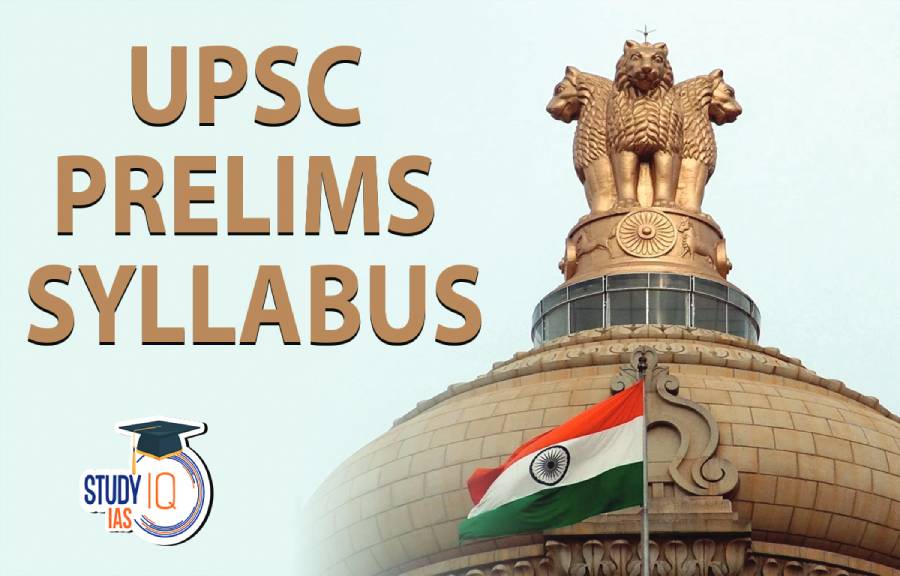
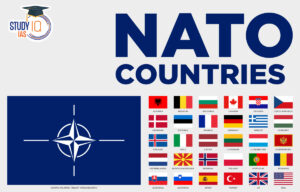 NATO Countries List 2025, Members, Funct...
NATO Countries List 2025, Members, Funct...
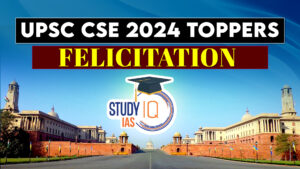 UPSC Toppers 2024 Felicitation Program b...
UPSC Toppers 2024 Felicitation Program b...
 World Day to Combat Desertification and ...
World Day to Combat Desertification and ...

